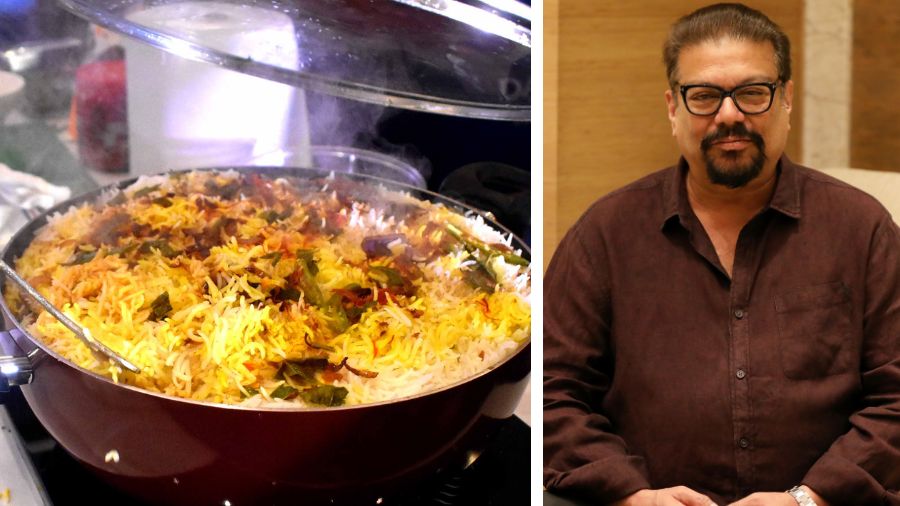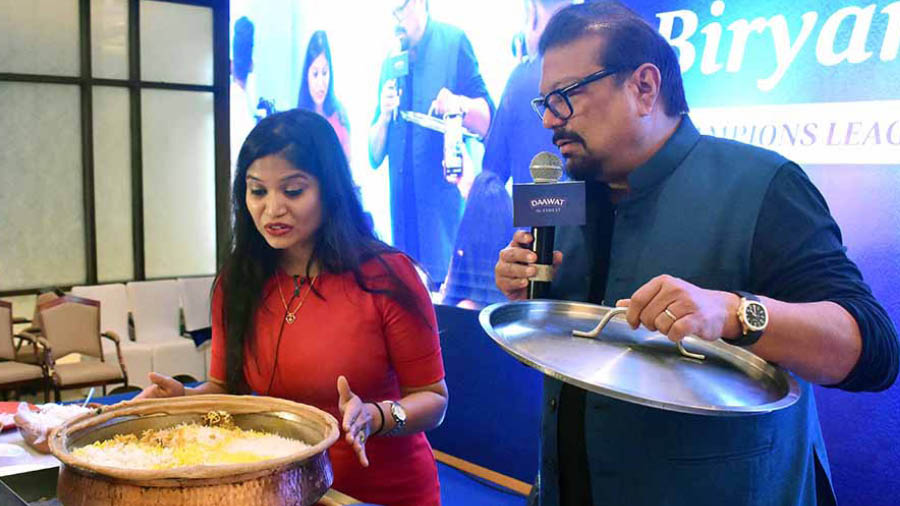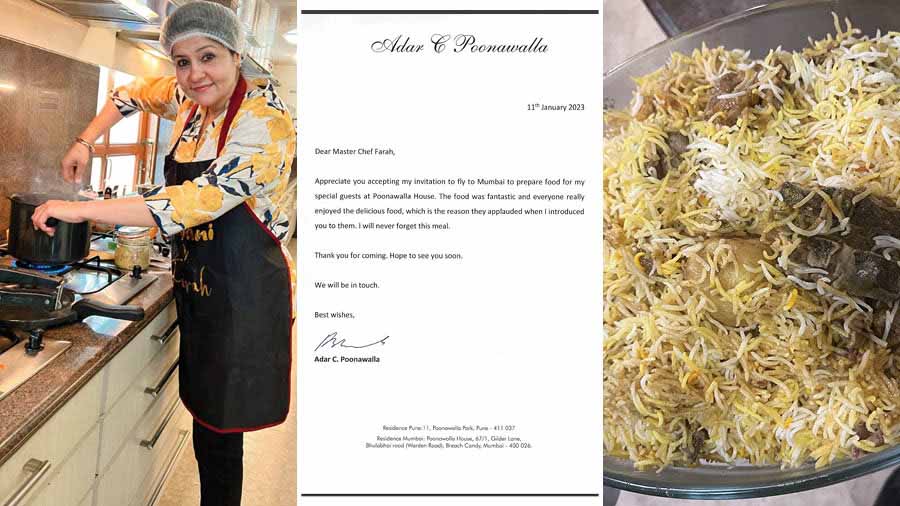The origins of biryani has been a longstanding debate for most food historians, critics and commentators. The Daawat Biryani Champions League held at ITC Sonar on June 19, not only showcased the culinary talents of Kolkata chefs but also sparked a fascinating discussion on this topic, led by food critic and veteran journalist Vir Sanghvi.
“Mughals brought pulao to India, not biryani. Pulao is an international dish found worldwide, whereas biryani is an Indian dish made by Indians,” said Sanghvi, providing insight into the historical roots of these two rice-based dishes.
Highlighting the key differences between pulao and biryani, Sanghvi explained, “In a pulao, meat and rice are cooked together. In a biryani, they are kept separate and put together at a much later stage. Also, fried onions play a significant role in amplifying the taste of a biryani, but a pulao has none.”
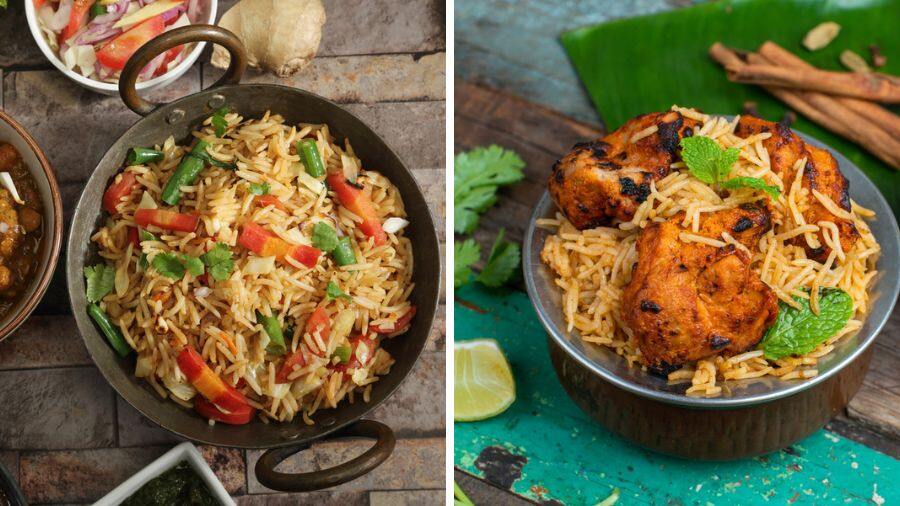
Pulao (left) is an international dish found worldwide, whereas (right) biryani is an Indian dish made by Indians, says Sanghvi Shutterstock
Sanghvi further emphasised the significance of basmati rice in crafting biryani, stating, “Biryani cannot be made with any rice other than basmati. Ultimately, biryani is the greatest invention of basmati.”
The Daawat Biryani Champions League showcased the culinary talents of Kolkata chefs. After meticulously reviewing 150 video entries featuring biryani recipes from Kolkata chefs, the judges selected the top six participants to cook the best biryani from east India at the event. Chef Sarfaraz Hossain from Al-Faiz Family Restaurant & Caterers emerged as the victor with his Kolkata Special Mutton Biryani. The panel of judges consisted of Vir Sanghvi, veteran chef Manjit Gill, chef and consultant Shaun Kenworthy, and popular chef Madhushree Basu Roy.
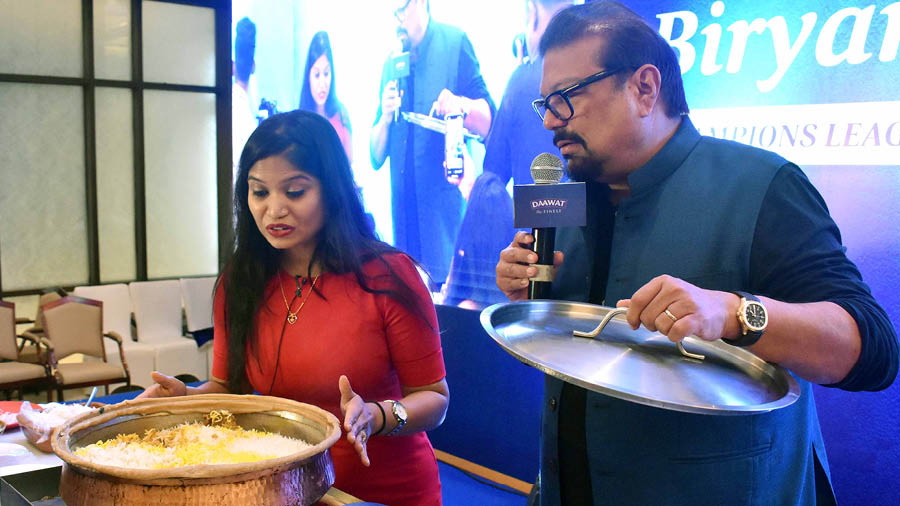
Vir Sanghvi explains to the audience the multi-faceted nature of biryani, alongside (left) home-chef Sneha Senapati
“When judging a biryani, one usually looks for how well the rice is cooked, the flavours of the masala, and if the meat falls apart or not, rather than it being a lump of meat that you’ll need a knife and fork to cut through,” Sanghvi explained, highlighting the elements that make a biryani exceptional.
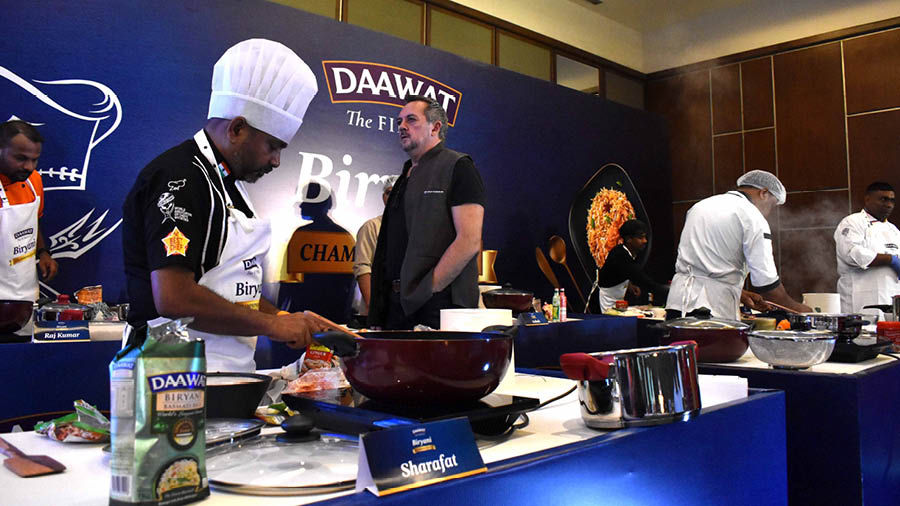
Chef Shaun Kenworthy, one of the judges at the event, inspecting the competition Ashim Paul
“The best way to have biryani is by tasting just a few grains of rice. A small portion of rice should be a microcosm of the entire flavour of the dish. By swirling the biryani in all areas of the mouth, one can truly experience the complete range of its taste,” he suggested.
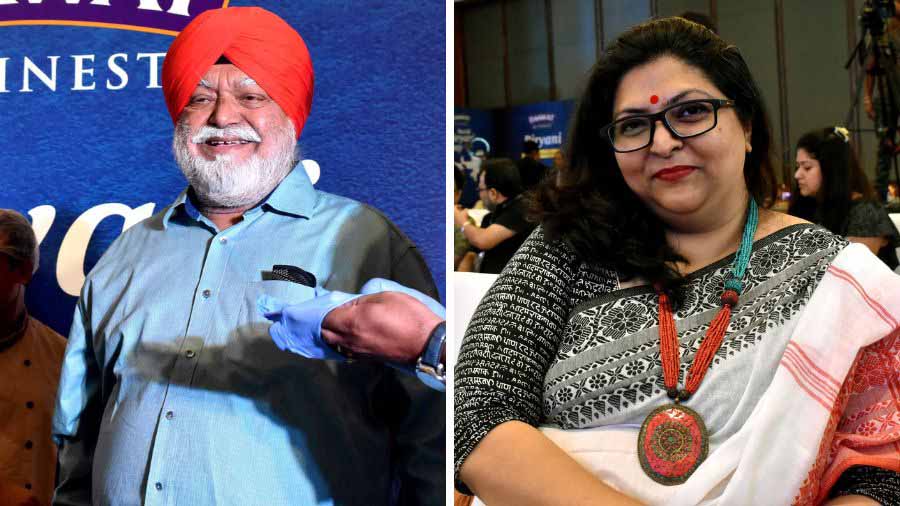
L-R: Manjit Gill, Madhushree Basu Roy Ashim Paul
While all the six participants displayed enormous patience, knowledge of biryani, and added style to the live cook-off, chef Sarfaraz Hossain (Al-Faiz Family Restaurant & Caterers) and his Kolkata Special Mutton Biryani helped him claim the spoils of the victory after being judged on the parameters of how well the biryani was cooked, its fragrance, and taste.
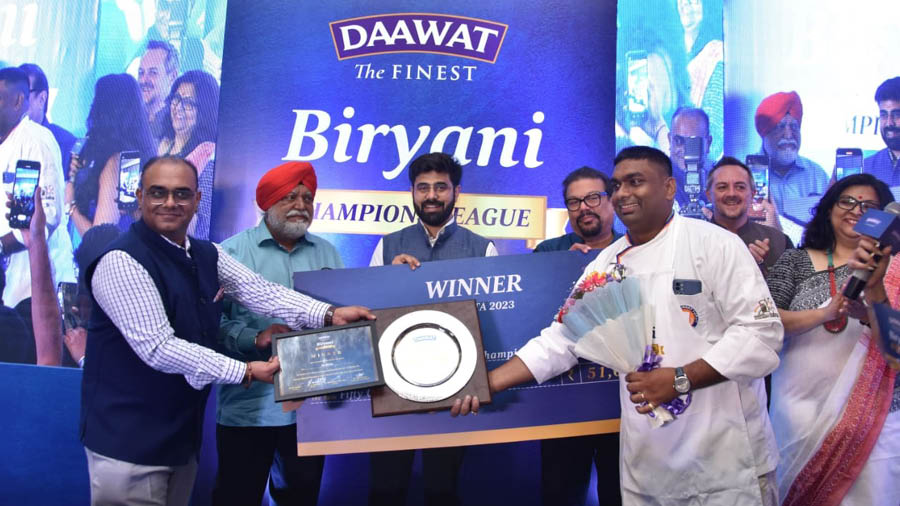
Chef Sarfaraz Hossain of Al-Faiz Family Restaurant & Caterers, won the prize with his Kolkata Special Mutton Biryani Ashim Paul
On being crowned the Daawat Biryani victor, Sarfaraz said, “This competition has truly allowed me to present my culinary skills to legendary names in the food and beverages industry. Winning this competition is a big bonus.”
Sharing a gem of wisdom for young chefs, Manjit Gill said, “Initially, one should look for a chance to train under the best of chefs, rather than solely focus on remuneration.”
